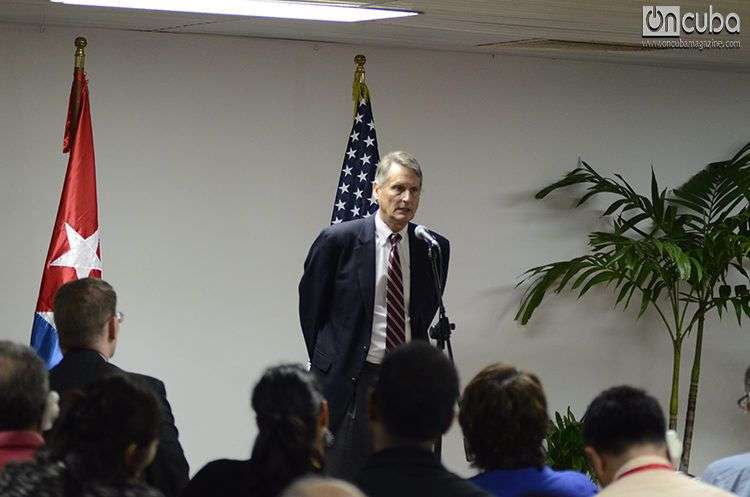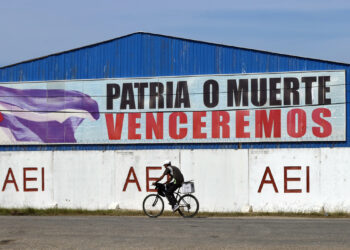That staying of the Adjustment Act and the dry foot wet foot policy is the main result of the first Cuba-US talks this morning in Havana, which have been devoted entirely to migration issues between the two countries.
The deputy assistant secretary for Western Hemisphere Affairs at the State Department, Edward Alex Lee said in his speech at the press conference that this law, which provides permanent residence to Cubans after spending one year and one day on American soil, “will continue to guide immigration policy between the two countries¨
Meanwhile, Josefina Vidal, Director of the United States Department in the Cuban Ministry of Foreign Affairs, who leads the Cuban delegation to the talks, expressed to journalists her concerns on the issue because, as she pointed out, the migratory agreements signed between the two nations, dating from 1994 and 1995 include the US commitment to promote legal migration on both sides of the Straits of Florida, which it has failed to comply with the maintenance of this law.
According to Vidal, it was detected the increased issuing of Cuban counterfeit documents to immigrate to the United States, so that “the delegation of Cuba proposed to make in the coming months a technical meeting of experts on immigration document fraud.”
Vidal also said that “not all illegal Cuban migrants intercepted at sea are being returned to Cuba, which is contrary to the Migration Accords” and also expressed the rejection of Cuba to “the continuity of the policy to encourage Cuban professionals and health technicians to abandon their missions in third countries, since it is a reprehensible practice of “brain drain”, which also tries to deprive of vital human resources for many countries benefiting from the Cuban collaboration.”
Lee said, meanwhile, that the fact that the talks between the two nations is productive is proof that despite the differences, the US and Cuba can find ways to keep a respectful and serious dialogue.
He also referred to other issues tackled such as the return of Cuban excludable aliens, parole program and monitoring of repatriated Cubans.
In late December, the US Coast Guard detected increases of Cuban migrants in its waters, so several political figures and analysts have emphasized on clarifying the legal situation for the future of the Adjustment Law and the need to take precautions on that regard.
Cuba and the United States turned this round of biannual migration talks this January in talks on normalizing diplomatic relations after that, on December 17 presidents Barack Obama and Raul Castro announced their willingness to mutual rapprochement.
Obama, in his State of the Nation speech, expressed his interest that within this year, the US Congress lifts the embargo against Cuba.










